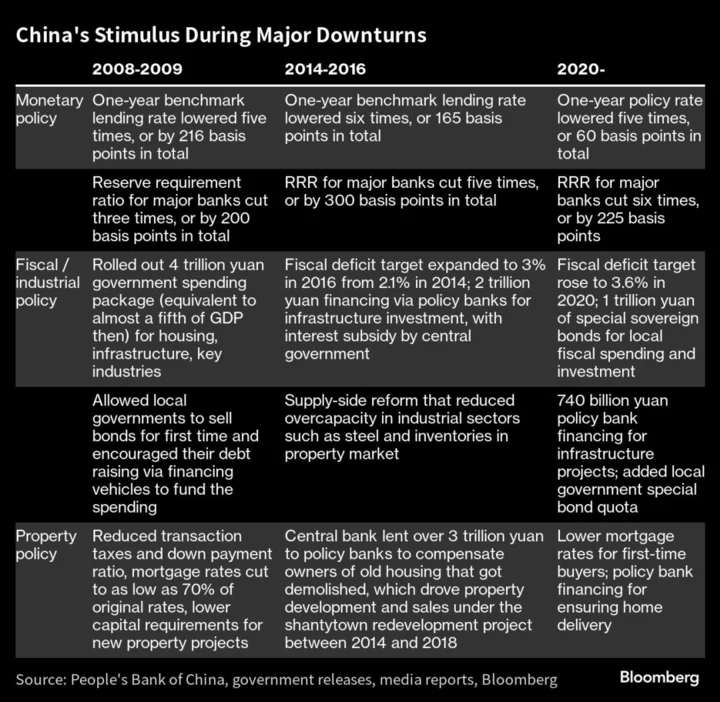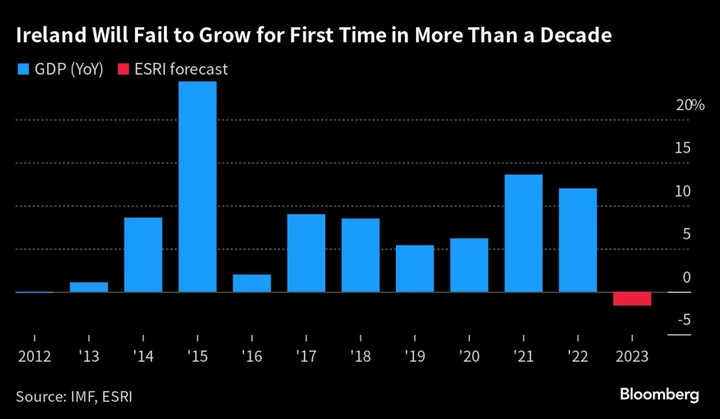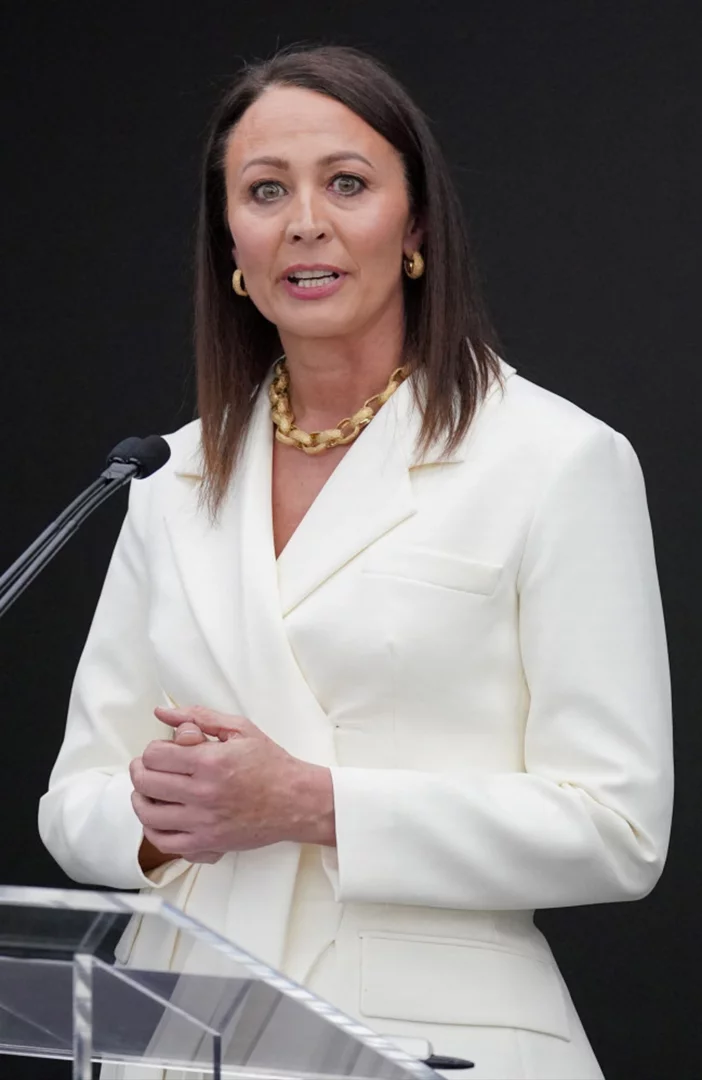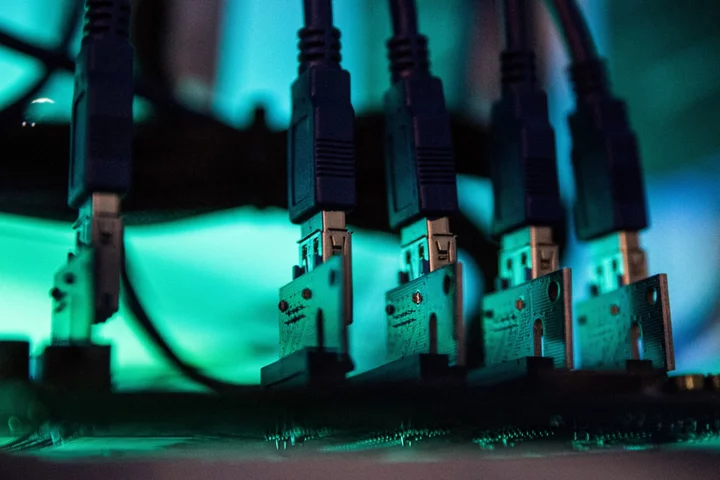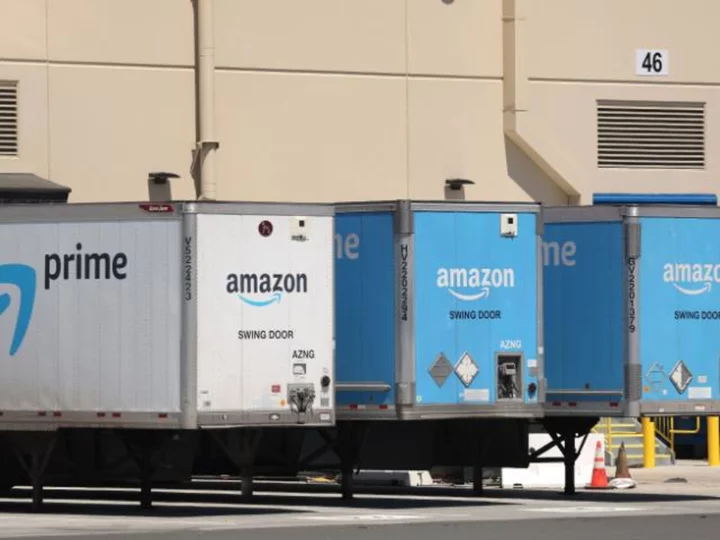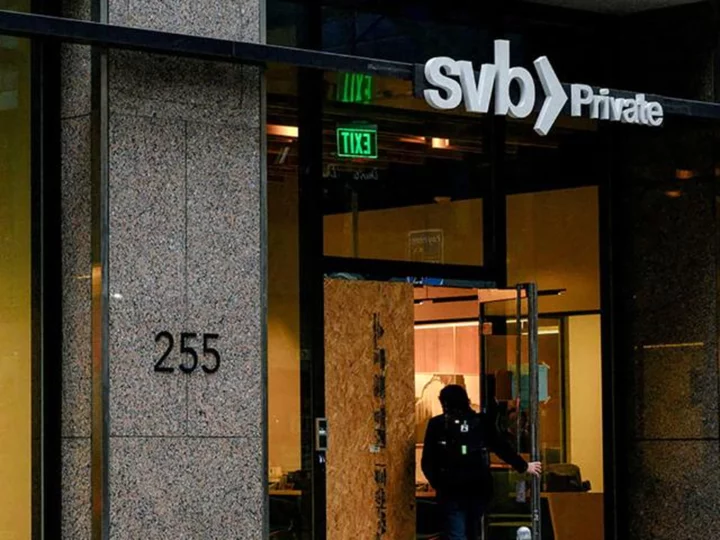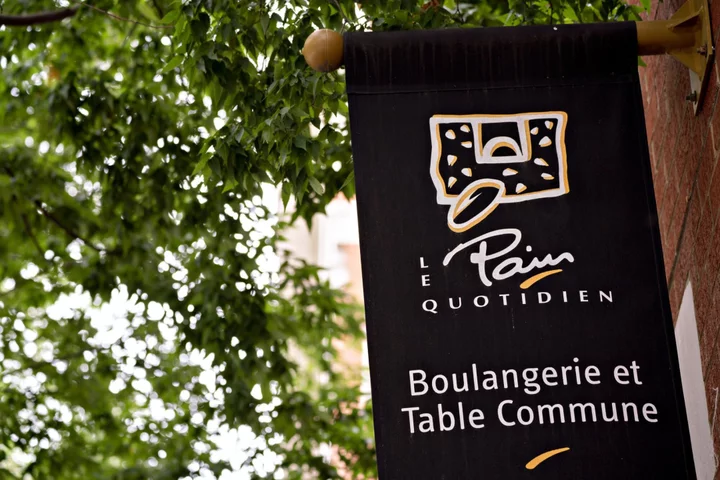China’s top leaders will likely hold off on unveiling aggressive stimulus or big economic reforms at a key meeting expected later this month as they continue to weigh their options.
That’s the view from local Chinese investors who Goldman Sachs Group Inc. economists spoke with over the past few days. Those clients included asset managers at insurance firms, mutual funds and private equity funds, the economists wrote in a Wednesday night research note.
“Local clients did not expect major policy easing measures or structural reform measures to be rolled out in the July Politburo meeting,” Goldman economists including Maggie Wei wrote in the report, referring to the anticipated gathering of the Communist Party’s 24 top officials including President Xi Jinping.
Structural reforms — which could address problems in the property market or the financing challenges of local governments — “would not be announced soon, as onshore policymakers still appeared to be exploring different policy options,” the economists wrote.
The Politburo meeting in July traditionally sets the tone for economic policy for the second half of the year. This month’s will be closely watched by investors for clues on whether Beijing will take strong actions to bolster growth.
The economic recovery is losing steam amid renewed weakness in the property market, the deep indebtedness of local governments, record high youth unemployment, sluggish household and business confidence, as well as fraught geopolitical tensions.
US Treasury Secretary Janet Yellen’s visit to China was one of the topics most frequently asked about by local investors, according to the Goldman analysts. Those clients were also looking for insight on China’s long-term growth potential, the outlook for the property market and US-China relations.
Onshore investors still expect China’s economy to expand “slightly above 5%” this year, the Goldman analysts wrote. That’s roughly in line with Beijing’s official target of “about 5%,” announced in March.
Many local clients expected sequential activity growth to have bottomed in the second quarter and will likely pick up in the second half, the Goldman analysts added. A stabilization of inventory, a gradual but continued recovery in consumption, possible export resilience and more fiscal support from Beijing were cited as reasons for that optimism.
However, a lack of growth drivers has kept investors cautious about the country’s economic outlook in the long run, the Goldman analysts added.

